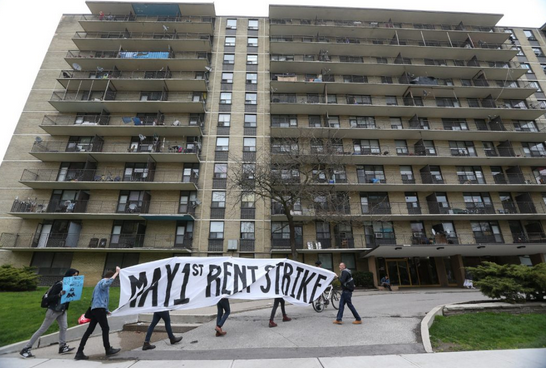Canadian women earn $0.87 for every $1.00 men earn - Let's close that gap
The World Economic Forum predicts that it will take 170 years for economic parity to be achieved[2]. What are our plans to close the gender wage gap in under 170 years?? In the spirit of meaningful progress, I have highlighted three meaningful actions most individuals within an organization we can take to advance the issue.
Catherine Mayer’s new book, Attack of the 50 FT. Women, is a call to battle. It is a great analysis that sadly demonstrates just how much work we still need to do to both achieve gender equality and hold onto the progress we have made. Mayer expertly describes how we are “stranded in an endless waiting game”. It is like we are in Alice in Wonderland and the White queen is saying “The rule is jam tomorrow and jam yesterday – but never jam today”[1]
The World Economic Forum predicts that it will take 170 years for economic parity to be achieved[2]. In Canada, despite a passionate and committed prime minister who has appointed the first ever gender balanced cabinet, we continue to struggle with this issue. “Canadian women earned $0.87 for every dollar made by men in 2015”[3] and when you look at total annual earnings (taking into consideration price and volume of labour provided), “women earned $0.74 cents for every dollar earned by men” [4] due to the fact that they often take on a greater burden for child rearing and family support.
We continuously hear a breadth of reasons as to why this is including the fact that that traditional women’s work pays less than traditional men’s work, that women have higher representation in lower wage occupations and that more women work part-time than men.
Yes, this is a complex issue but the progress we are making is just not sufficient. In addition to the issues outlined above, I believe that there exists a lack of accountability, limited valuation positive external benefits women deliver to families and consistent pressure for gender wage parity.
How many quotas have we instituted in the last decade? What incentives and penalties have we created to ensure that all intuitions including governments, businesses, not for profits and academic organizations are making meaningful progress on this issue? What are our plans to close the gender wage gap in under 170 years???
Equally important is asking, how we as individual women can help to create consistent pressure to close that gap. Robert Collier said “success is the sum of small efforts – repeated day in and day out”. What if we Canadian women were consistently taking small steps to advance this issue?
In the spirit of meaningful progress, I have highlighted three actions most individuals within an organization can take:
1. Connect with colleagues within the organization and share salary information. This may be uncomfortable at first but knowledge is power. Understanding different salary ranges, negotiation tactics, progression strategies is critical to being able to effectively advocate for individual and collective income advancement. If you feel uncomfortable sharing specific salary ranges, use glassdoor and suggest your colleagues do as well. This will help build collective knowledge
2. Ask your employer what the average wages are for males and females within your organization. We know there is significant business benefit and value from female leadership: a 2016 Forbes article outlines how a study of over 20,000 firms by Washington- based think tank, Peterson Institute for International Economics, found a strong statistical link between “the presence of women in corporate leadership positions and positive firm performance”[5]. Referencing this or other studies and asking your manager, department head, CEO or HR lead can be a good way to constructively help your organization and female colleagues benefit
3. Ask your employer what strategies they are working on and how you can help? Showing that you care about both the organization and the issue of gender equity is very important. Your employer may already have a number of strategies ranging from recruitment processes to progression within the organization. Finding out what they are working on and how you can participate is a great step forward. And if they are not working on anything, the discussion is a great catalyst for action
* If the call to battle engaged you and you followed any of the suggestions, please let Strive know. If you enjoyed this article and think it was helpful, please share it. If you have suggestions for others and or would like to tell your story, please comment or send Strive an email.
[1] Mayer, Catherine, Attack of the 50 FT. Women, Harper Collins, 2017.
[2] Treanor, Jill, Gender pay gap could take 170 years to close says World Economic Forum, the guardian, October 25, 2016.
[3] Israel, Solomon, StatsCan on gender pay gap: Women earn $0.87 to Men’s $1.00
[4] Israel, Solomon, StatsCan on gender pay gap: Women earn $0.87 to Men’s $1.00
[5] Lipman, Victor, The Best Reason Yet to Increase Women in Business Leadership, Forbes, February 23, 2016
"You have to own it and move forward" says Grace
In all my interviews previous to Grace, individuals had expressed feelings of anxiety, frustration, ambivalence and avoidance towards money matters. Not Grace – she expressed joy. I kid you not, she said “Finances are Fun” and she meant it. I was curious about what made her enjoy money matters and most importantly what made her successful.
MEET GRACE:
Late 20's
Recently purchased a home in a small suburban town with a lengthy commute to work in Toronto
Engaged to be married in the fall
Has an undergrad degree in a field related to her employment
Personal income in the $60 - $70 k range
Has mortgage debt
Partner Jason has some student debt
I spend a lot of time thinking about what the recipe is for financial comfort. Not the secret to being rich but instead what is needed for us, both individuals and as a society to feel comfortable and have the finances to build the life we want. I feel those ingredients are far more important than knowledge about money, budget worksheets, the stock market and or TFSA accounts.
Through my work, I have been trying to hone in on those mystery ingredients and Grace has gotten me a little closer. I first met Grace when I started researching economic inequality. She was my fourth or fifth interview. In all my interviews previous to Grace, individuals had expressed feelings of anxiety, frustration, ambivalence and avoidance towards money matters.
Not Grace – she expressed joy. I kid you not, she said “Finances are Fun” and she meant it. I could see she was being genuine by the level of energy she had used to talk about her efforts, what she was thinking about and planning. I was curious about what made her enjoy money matters and most importantly what made her successful.
It was very clear that Grace’s experiences with money were pretty average. She had not studied business or any financial related field. She grew up in an average family with sufficient means but not affluence. She did not have an allowance but was randomly given money from grandparents. She was always eager to earn her own money and be independent, and so Grace started working part time from the age of 13.
Throughout our conversation, Grace provided a deeper understanding of what had shaped her approach to money. She started out as a saver and that lasted until 1st year university. At 17, she went away to school and spent all her saved money. She was away from home for the first time and had newfound freedom. She very much enjoyed the hanging out with friends, going out for food and drinks and spending what she had built up from her years working part time.
After a fun and “reckless” year away, Grace went home for the summer. Here she realized that she did not have any money left to do the fun things her friends were doing. So she had to work hard to rebuild it. That was a good lesson in money management.
After completing school, Grace moved to Toronto and had to be completely independent financially. This was difficult as she was moving from Hamilton where her accommodation cost 25% of her new Toronto costs. This need to be independent combined with a large increase in living expenses created financial fear. She was scared she would not be able to make ends meet. She began saving out of fear.
Grace gradually shifted her approach to money. She stopped being scared she would not make ends meet and started working towards specific goals. This happened in part as her career started to progress and in part as she moved in with her partner Jason, so her expenses decreased.
In talking with Grace, it is clear she has a strong sense of direction. She knows exactly what she wants and is actively working towards it. She sees money as a tool or enabler of her goals and so manages it as such.
When asked what makes her so confident about money, Grace says, it’s her desire for control and her clarity around her end goals. Finances are something we have control over; we know where we are at all times. We generally don’t have surprises and if we do, we have buffers to deal with them. In terms of her goals, she wants to start a family and to retire with a nice nest egg.
So what are Grace’s mystery ingredients? I think 4 things make Grace successful:
Knowing what she wants – Being rich is not a goal for Grace but she is clear on what she wants out of life and this guides her financial decision making. She is now in the process of planning a wedding. Like any new bride, she’s excited yet daunted by the ridiculous wedding costs. In chatting about her wedding, she talks about how they have agreed on what is important to them and designed their budget accordingly.
Grace & Jason have splurged on a photographer but saved on flowers
Grace is on the local buy and sell group daily, looking for brides selling their wedding wares - most only used once
Grace & Jason are keeping decor very simple and purchasing used where possible. Items couples would typically rent, we have purchased second-hand, so we can re-sell afterward. "The day is not about our napkin colour, it's about marrying my best friend!!!"
Grace manages her money – In the same way that one has to manage a household; wash dishes after dinner so you have clean ones in the morning, do laundry so that you do not spend Monday morning frantically looking for fresh socks and underwear, clean up the kids toys so you are not forever stepping on those evil lego pieces, Grace manages her money. She knows exactly what she spends on a weekly basis and how she’s doing on that week’s budget. She is always managing and always balancing. It’s just the way it is, there is value in regularly managing our money. It is not a silver bullet but instead the compilation of the everyday actions that add up.
If Grace goes out for a nicer lunch early in the week, she may work to cut coffees for the rest of the week
If Grace really wants a new outfit, she will think about it first and figure out where to cut in order to make it work
Logistically, Grace and Jason have a joint account from where all collective expenses are paid. They also make sure to have money allocated for fun experiences so they get to enjoy the things they prioritize. In addition to this, both Grace and Jason have individual accounts including RRSP’s, TFSA’s and checking accounts from where any personal expenses are paid
Grace talks about money openly – Money is a natural part of Grace’s dialogue. Her and Jason talk about it on an almost daily basis. They have a handwritten weekly budget on their fridge as well as a couple of excel based spreadsheets. They keep a detailed tally of all revenue and expenses and adjust future plans to accommodate for any unexpected expenses they may have had to deal with. This is not a big sit down discussion but instead an inclusion in other topics of conversation – she will often say things like "I saw this cool wedding book online but it was a bit pricey. I think I’ll look around a bit and see if there are some better alternatives". Grace is also open with family and friends. This is important. As others become aware of Grace’s goals and what she is looking for, they can easily be part of the process and support her. Friends are more likely to suggest a hang out hike instead of a restaurant dinner knowing that she is in wedding planning mode. This helps her be successful
Grace makes mistakes and keeps going – Grace like all of us has learned a lot about money. She is not upset by the mistakes she has made. She recognizes that there were things that could have been better but that’s ok. She learns from these experiences and keeps going. After university, she learned that without savings she would not be able to enjoy what she valued
After a month of high bank fees and "reckless" spending on a girls' trip, Grace changed her bank account type to minimize the number of transactions she can make per month without added fees. Knowing she'll get charged discourages unnecessary spending, beyond what is need. Own it and move forward, I say!
*If you enjoyed this article and think it was helpful, please share it. If you have suggestions for others and or would like to tell your story, please comment or send Strive an email.
Let's accelereate progress on housing and economic inequality
On the housing front, we are not directly addressing market driven gentrification, nor the market based elimination of lower cost units in favour of higher margin or profit units. We are also not addressing the ability of landlords to exponentially increase rents for new tenants and the systemic pressure they apply to encourage tenants to vacate. And most importantly, we are not meaningfully addressing market based economic inequality that has close to half of Canadians living paycheque to paycheque.
In the last few weeks we have seen the Parkdale community transition it’s built up frustration at landlord bullying, lack of accountability for repair requests and disregard for health and safety to a successful community organization. Parkdale Organize! is focused on ensuring completion of necessary repairs in the approximate 1,200 MetCap units and most importantly on stopping the above board rent increase requests. Legally landloards can apply to the Landloard and Tenant Board (LTB) to increase rents above the annual guidelines under specific conditions.
This is a great example of successful citizen engagement at the grassroots. It has neighbours banding together to fight a landlord of greater wealth to maintain their economic access to housing. With 200 tenants currently participating, over $20,000 in funds raised to support tenants, and an effort to add new tenant strikers in June, one can see the potential for success.
With this possible victory, it is important not to forget the issue is much larger than MetCap’s requests for above board rent increases. The issue is about economic access to housing for working class individuals who are not benefiting from meteoric rises in property values. Instead they are relying on stagnant incomes to make ends meet.
Recognizing this, Ontario has put forth a long-term affordable housing strategy that includes a number of meaningful initiatives aimed at increasing access. These efforts range from proposed legislation giving municipalities the option of requiring affordable housing units as part of residential developments to an investment of $178 million over 3 years on a variety of initiatives including $100 million in supportive housing and $17 million to pilot a portable housing benefit. These efforts are enhanced by the recent introduction of the Rental Fairness Act, 2017 which if passed, would extend rent control to all private rental units, including those occupied on of after November 1991.
These are meaningful initiatives that deserve to be applauded. That being said, they are light years away from changing the game.
On the housing front, we are not directly addressing market driven gentrification, nor the market based elimination of lower cost units in favour of higher margin or profit units. We are also not addressing the ability of landlords to exponentially increase rents for new tenants and the systemic pressure they apply to encourage tenants to vacate. And most importantly, we are not meaningfully addressing market based economic inequality that has close to half of Canadians living paycheque to paycheque.
These are complex issues and the solutions are not easy. That being said, it seems we are increasingly playing catch up. We are plugging one leaky hole only to realize that ten others have popped up in the meantime.
Let’s challenge ourselves to ask how might we get ahead of the curve and make meaningful progress on the goal outlined in Ontario’s poverty reduction strategy: “to create a province where every person has the opportunity to achieve his or her full potential and contribute in a prosperous and healthy Ontario”
What specific and measurable goals should we be setting with regards to economic inequality and access to housing?
What mechanisms of participatory budgeting can we introduce to ensure that we are spending collective funds in a way that most benefits our society?
And crucially important, what measures of accountability should be introduced to ensure that we make meaningful progress?



